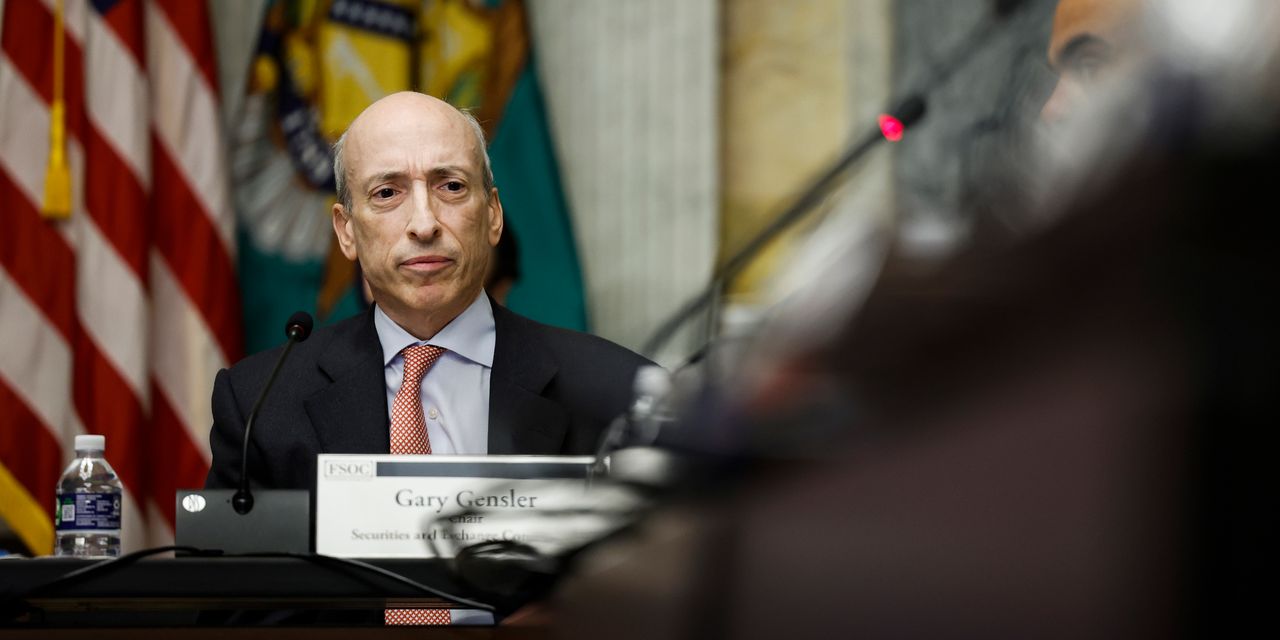At a Wednesday meeting, the U.S. Securities and Exchange Commission will vote on rules aimed at preventing money-market funds from running short of cash in times of crisis—such as the 2008 financial crisis or the 2020 Covid-19 outbreak.
Some of the SEC’s ideas don’t sit well with the industry that manages the nearly $6 trillion invested in the funds. One is the agency’s proposal to require “swing pricing” adjustments to withdrawals, on days when a fund’s institutional investors are taking out more cash collectively than they are putting in. Swing pricing could discourage a “run on the bank” amid a panic, the SEC believes, by penalizing investors who are rushing to cash out first.
“There is a saying when you’re in the woods,” SEC Chair Gary Gensler told a fund industry gathering in May. “You don’t have to outrun the bear; you just have to outrun one of your fellow campers.”
Swing pricing would deter a “dash for cash,” Gensler said, by adjusting the fastest withdrawals for the liquidity cost they leave on those remaining in a fund. The SEC proposal would require it just for certain institutional and tax-exempt money-market funds. Such funds manage about $300 billion in aggregate, which they typically invest in certificates of deposit and commercial-paper issued by banks—assets that are illiquid and poor sources of quick cash, said Gensler.
The money-market reforms on Wednesday’s SEC agenda were actually proposed back in 2021. Money-market funds have been around since the 1970s, when regulations prevented banks from offering depositors rates that could keep up with the era’s inflation. The funds required government backstops in the liquidity crunches of 2008 and 2020. But in the year 2023, the liquidity crunch was in the bank sector, while money-market funds found themselves swimming in nearly $1 trillion in cash that investors pulled from banks.
Since swing pricing was proposed in 2021, the idea has been roundly-condemned by money fund managers, ranging from
Federated Hermes
(ticker: FHI), to
JP Morgan Chase
(JPM), to
State Street
(STT), as well as the mutual fund trade association called the Investment Company Institute.
Adjusting the daily price of redemptions for the SEC’s swing factors would be impractical and costly, Investment Company Institute spokesman Stephen Bradford told Barron’s. The industry’s fund managers are well able to manage redemption demands in panicky times, he said.
The SEC proposal does contain an alternative idea for discouraging runs: allowing funds to assess fees on withdrawals in times of tight liquidity. The industry has said it wouldn’t mind that measure, as long as the fees were at the fund’s discretion.
There are other parts of the SEC money-market proposal that the industry supports, Bradford noted. Fund managers won’t mind if the SEC takes away their ability to temporarily suspend redemptions in a liquidity crunch. Studies of the 2020 financial dislocations have concluded that the mere existence of that “gating” power spurred fund investors to grab for their cash.
The industry also doesn’t object to the proposed increase in the required level of liquid assets at a fund—above the current levels of10% if measured daily, and 30% if measured weekly.
“Money-market funds are conservatively managed,” said industry spokesman Bradford. “And if they want us to be extra-conservative, we support that.”
Write to Bill Alpert at [email protected]
Read the full article here



